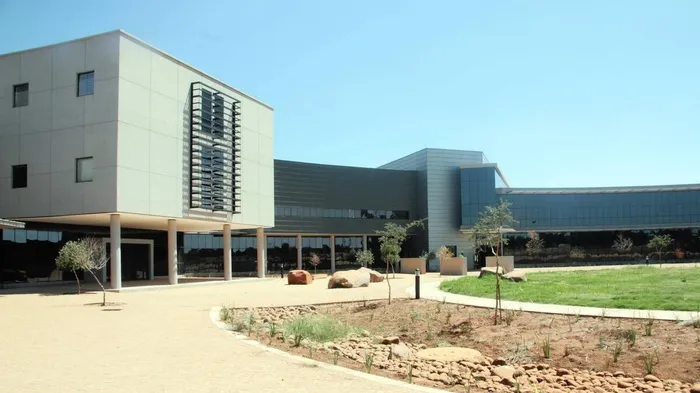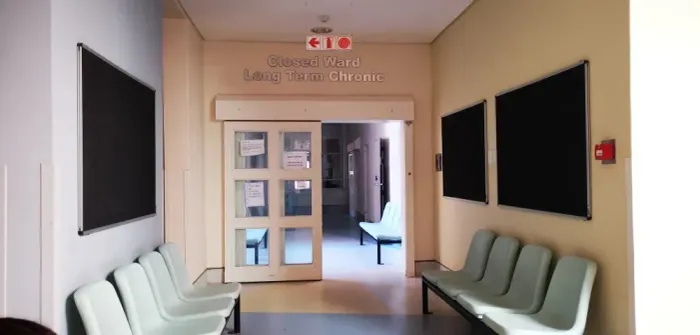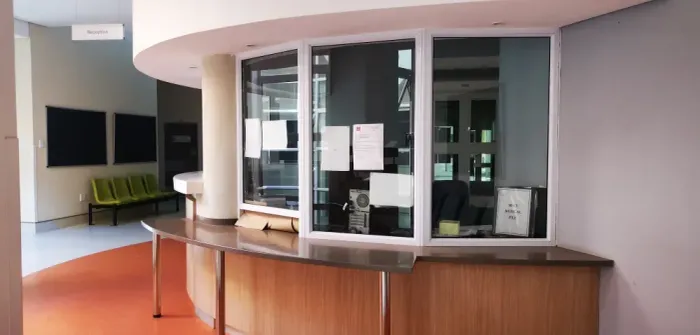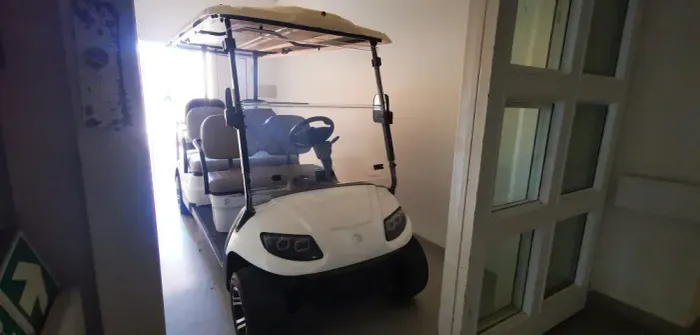
The R2.1 billion Northern Cape Mental Health Hospital, once described by Premier Zamani Saul as a “monument to corruption”, continues to provide inadequate care to patients.
Image: File picture / DFA
A REPORT into the deaths and maltreatment of psychiatric patients at health facilities in the Northern Cape has revealed chilling cases of neglect and human rights violations.
One patient reportedly froze to death, another remains bedridden and dependent on nursing staff following brain surgery, and a third died after contracting double pneumonia, possibly due to exposure to severe cold.
The findings, released by Health Ombudsman Professor Taole Mokoena on July 30, concluded that patients received inadequate medical care and that the deaths could have been avoided.
The investigation was conducted by the Health Ombud in collaboration with the South African Human Rights Commission.
The R2.1 billion Northern Cape Mental Health Hospital (NCMHH) was described as a “death trap”.
A complaint was lodged by Health Minister Dr Aaron Motsoaledi on October 10, 2024, following the deaths of two patients at NCMHH and the critical condition of two others who were admitted to Robert Mangaliso Sobukwe Hospital (RMSH). Both facilities are located in Kimberley.
The incidents occurred in July and August 2024 and involved patients Cyprian Mohoto, Petrus De Bruin, and John Louw, who were all admitted to Robert Mangaliso Sobukwe Hospital (RMSH) after complications at NCMHH. Another patient, Tshepo Mdimbaza, died at NCMHH.
At the time, NCMHH was experiencing challenges with the electricity supply due to cable theft and vandalism of its power substation.
Mokoena stated that the absence of electricity left hospital telephones and air conditioning out of service, while both patients and staff endured extreme weather conditions.
He pointed out that it took an entire year to restore electricity to NCMHH.
At times, the facility was left in complete darkness due to a shortage of diesel.
“The investigation found that the delay in repairing the electricity supply to NCMHH was due to dysfunctional supply chain management processes within the provincial Department of Health,” said Mokoena.
He pointed out that patients could not be resuscitated as life-saving equipment could not be charged due to the electricity being off.
“These circumstances negatively impacted their health and violated their human rights.”

Many areas of the NCMHH remain underutilised due to a staff shortage.
Image: File picture / DFA
According to Mokoena, Mohoto was admitted to RMSH on July 13, 2024, after experiencing a suspected abdominal and bowel obstruction following complications while at NCMHH.
He was instead diagnosed with multi-lobar pneumonia but was discharged without appropriate treatment, apart from being given a laxative.
Mohoto died in the surgical recovery unit at RMSH on July 16, 2024, while waiting to be transported back to NCMHH.
“His condition deteriorated without any appropriate action being taken. The investigation revealed gross mismanagement surrounding his care, which ultimately led to his death,” said Mokoena.
He added that De Bruin was transferred to the RMSH emergency centre on July 30, 2024, after collapsing and becoming unresponsive at NCMHH.
“He was stabilised and admitted to the medical recovery unit for hypoglycemia. While the medical care and investigations conducted in the emergency centre were appropriate, the monitoring by nursing personnel was found to be inadequate.”
Mokoena noted that Mdimbaza was discovered unresponsive in his bed at NCMHH on August 3, 2024.
“The resuscitation process was delayed due to the unavailability, malfunction, or unpreparedness of resuscitation equipment. Nurses and medical staff failed to monitor the patient's vital signs. The post-mortem report indicated that he died due to exposure to extremely cold conditions in the ward.”
Louw, meanwhile, suffered an acute subdural haemorrhage as a result of his chronic disease progression and side effects from chronic medication administered at RMSH.
“Subsequently, emergency craniotomy and craniectomy were successfully performed on July 7 and July 23, respectively. He was discharged back to NCMHH on October 28, 2024. Louw remains bedridden.”
Mokoena said the investigation also “established additional findings, including leadership instability in the Northern Cape Provincial Department of Health, which negatively affected service delivery, safety, and the quality of patient care at NCMHH and RMSH”.
He identified “poor governance and systemic lack of leadership and poor management at all levels, emergency unpreparedness, crumbling infrastructure, poor pharmacy and medicine control management, shortage of staff, poor quality assurance management, non-compliance with patient record keeping and poor laundry services” at NCMHH.
“RMSH was found to be experiencing a critical staff shortage across the board; lack of oversight with nursing supervision; communication breakdown with reporting systems, non-compliance with guidelines on principles of good record keeping and overcrowding at the hospital aggravated by the absence of a district or regional hospital.”
Mokoena highlighted the substandard care that was offered to patients at RMSH and NCMHH.
“NCMHH lacked emergency resuscitation equipment and drugs. Patients were often left without linen or blankets, and laundry was not delivered on time.
“Mohoto soiled himself and was left in wet pyjamas as there were no clean ones available. This exposes patients to ill health and violates their right to human dignity.”
The investigation also found that two consignments of clothing procured for patients during 2022 and 2023 were of poor quality — with pyjamas that tore easily, were too small, and did not last six months.
“The use of poor-quality pyjamas and insufficient blankets exposed patients to extreme cold temperatures.”

An abandoned area of the NCMHH.
Image: File picture / DFA
Mokoena further stated that both hospitals experienced a “gross staff shortage”, especially of professional nurses.
“Although it [NCMHH] was commissioned for 287 beds, the current occupancy is at 153 beds. The nurse and doctor to patient ratio per shift is inadequate. Both NCMHH and RMSH operated some shifts without professional nurses due to the staff shortage. Enrolled nurses and enrolled nursing assistants are made to take charge of ‘high acuity’ units at RMSH.”
He said patients’ conditions deteriorated while nurses and medical personnel failed to take the appropriate action.
“The NCMHH has poor infrastructure, and the building is breaking down. Broken windows were not repaired, posing a security and safety risk through which patients can escape. Patients use broken glass as weapons. The electromagnetic doors were not working, posing a safety and security risk for all building occupants. Should they close, especially during a fire, occupants will be trapped inside a death trap and will be unable to escape. Sewage was coming out of the shower drains. There was also general neglect of the buildings and the environment.”
He added that psychiatric beds procured for NCMHH were found to be unsuitable.
Meanwhile, the department told investigators it was probing the procurement of expensive golf carts — reportedly costing R500,000 each.
Mokoena pointed to the poor workmanship of the hospital, which has resulted in crumbling infrastructure and sewage reticulation systems failures, leading to pipe spillages and toilet blockages.
“Sewage was found coming out of one of the wards’ showers, ceilings were damaged and leaking, and walls were damp.
“Despite the allocation of budget and personnel, maintenance needs of the hospital infrastructure do not appear to be addressed on an ongoing basis.”

The Health Ombud says patients died needlessly at Northern Cape hospitals due to non-functional equipment, poor leadership, and prolonged power outages that left vulnerable psychiatric patients exposed, unmonitored, and untreated.
Image: Pixabay / File picture
The hospital grounds were described as unkempt, with long grass and weeds creating a breeding ground for snakes and pests, which are reportedly common on site.
The Health Ombud made several recommendations, including improving overall safety and quality of healthcare at both facilities.
The Head of Department was advised to immediately appoint a task team to monitor implementation of the recommendations outlined in the report, and to hold officials accountable through formal disciplinary processes.
Mokoena also called on the national Department of Health to initiate a forensic investigation into the procurement processes at NCMHH.
“Priority should be given to the development, reinstatement, and implementation of an effective and efficient reporting system for continuity of care and effective communication, and the development of comprehensive standard operating procedures and protocols to guide healthcare personnel in providing healthcare services.”
Health Department spokesperson Mandisa Meereoothle said the department took the findings seriously and would develop a plan to ensure accountability and transparency in prioritising patient safety and quality care across all facilities.
"The department recognises the importance of mental health services and the vulnerability of psychiatric patients. We are dedicated towards implementing improvements to prevent similar incidents from occurring in the future. The department extends its condolences to the families affected by these tragic incidents and reaffirms its commitment to providing quality healthcare services to all residents of the Northern Cape," said Meereoothle.

A golf cart that was reportedly purchased for R500,000.
Image: File picture / DFA